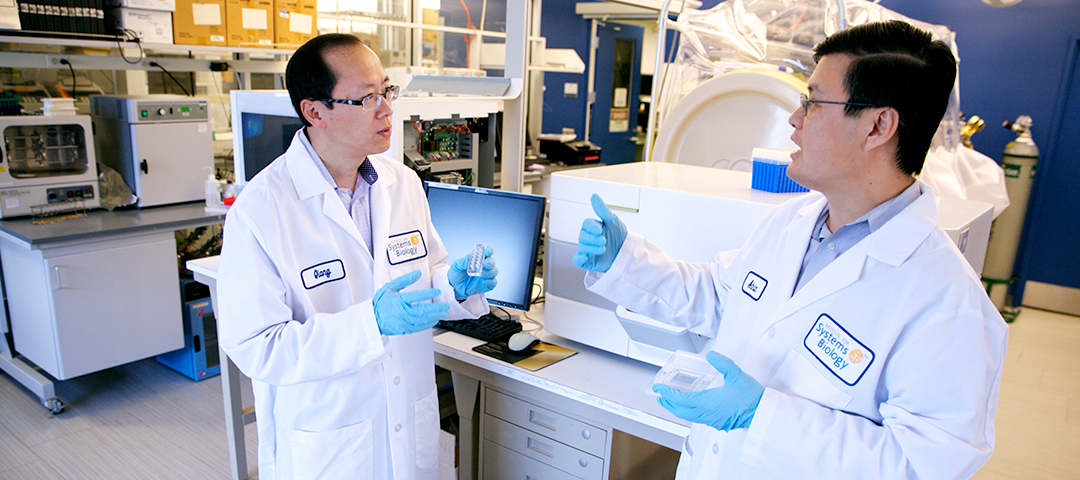ISB Gets $2.3 million NIH Grant to Use Single-Cell Technology to Fight Cancer
 isbscience.org/news/2014/09/22/isb-gets-2-3-million-nih-grant-to-use-single-cell-technology-to-fight-cancer/
isbscience.org/news/2014/09/22/isb-gets-2-3-million-nih-grant-to-use-single-cell-technology-to-fight-cancer/
Pictured above: Dr. Qiang Tian, left, and Dr. Edward Lin, right, discuss single-cell analysis technologies developed at Institute for Systems Biology in Seattle.
September 22, 2014 – ISB has received a $2.3 million NIH grant over four years in response to NCI’s “Provocative Questions” Initiative. The project will apply ISB’s most advanced single-cell omics technologies to an innovative clinical trial for colorectal cancer (ADAPT). Principal investigator Qiang Tian, MD, PhD, head of the Cancer & Stem Cell Group, explained that the goal is to identify single cell signatures that can be used to stratify those patients who respond well to the treatment from those who are resistant to the treatment. For the patients who do not respond, the hope is to figure out a better treatment scheme from the study.
A comment from one of the proposal reviewers stated: “Using clinical trial-treated tumors to characterize the sub-grouping could lead to changes in future regimens and will provide a wealth of translational knowledge. (This) will answer questions about cellular resistance which has many implications on treatment regimens. This potentially can have broad ranging implications in understanding tumor resistance, how treatment fails and future chemotherapy regimens, all of which would be highly significant.”
ISB is collaborating on this research with Dr. Edward Lin, a medical oncologist at Seattle Cancer Care Alliance, associate member of Fred Hutchinson Cancer Research Center, and associate professor at the University of Washington. Dr. Lin was named 2014 Cancer Researcher of the Year by The Gateway For Cancer Research organization.
Acknowledgment: This research is supported by the National Cancer Institute of the National Institutes of Health under Award Number R01CA190122. The content is solely the responsibility of the authors and does not necessarily represent the official views of the National Institutes of Health. The ADAPT trial is funded by The Gateway for Cancer Research.






